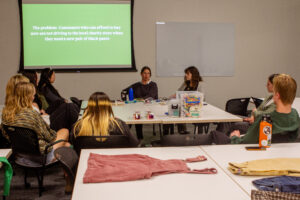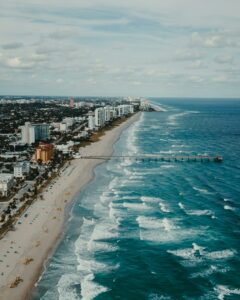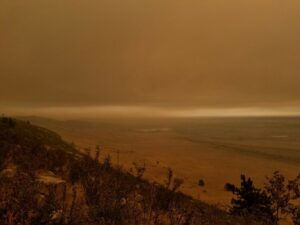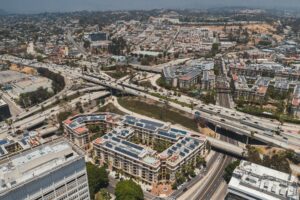Guest Post By Cibi Vishnu Chinnasamy, 2019-2020 Sustainability Leadership Fellow and Ph.D. Candidate in the Department of Civil & Environmental Engineering and Urban Water Systems
What will you do when the tap water runs dry in your household? What will you do when water is rationed to 20 gallons to meet your household needs of 4 people over 3 days? What if that water is murky, smells foul, and in the end, you must skip school/ work and take loans to pay for hospital bills?
Confused and wide-eyed as you might be now; the above is the reality for more than two billion people on our planet who don’t have access to clean and safe drinking water (WHO/UNICEF 2017). To put this number into perspective, imagine roughly six countries each with the same population as that the U.S. Those six countries, having about 30% of the total global population, only have a fraction of water that is available in the U.S. Also, if those six countries had the same defense power and greed for resources as the U.S., nuclear warfare would have prevented me from writing this blog. As a society, we may be proud and boastful of the advancements we make in science and technology, the trendy “isms” of diet and lifestyle we practice to “save the planet”, and the social media posts about well-being, oneness of humanity and the fake sense of inclusiveness; but in reality, there is a rapid increase in inequality and injustice when it comes to sustainably sharing resources on our planet, especially, water. Well, I’ll give you my side of the story and I’ll leave it up to you to take home the message that resonates with you.
Growing up on a farm in south India, we rotated maize, bananas, different varieties of gourds, pumpkins and spinaches, and cultivated coconuts for decades. I was surrounded by abundance of food. Although money was not enough most of the time, we had enough food to could feed anyone and everyone who visited our house. My parents always said that abundance in life is nothing but going to bed with a contented stomach after a good meal. At that time, little did I know about the intimate connection which water had with the food that I ate. Because, this wonderland I lived in soon fell into pieces when the groundwater pumps ran dry. Well extensions and newer groundwater wells did little to alleviate this scarcity, which resulted in us buying tanker loads of water to sustain the agriculture. Very soon upward spiraling bank loans, lack of local cooperation, mismanaged drought insurance schemes from the government and the bipolar temperament of the weather gods cemented the end of successful farming for my family. With similar experiences, issues like farmer suicides, loss of agriculture practices, poor health and bad sanitation are not uncommon in India these days.
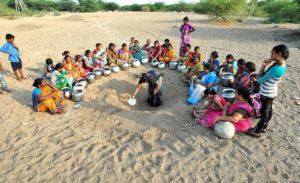
To understand in detail the reasons for water scarcity in my backyard and around the planet, and to find long-term solutions, I decided to leave India and moved to Colorado to pursue research in water resources planning and management. During my graduate coursework, I was brought to the realization that water is intrinsically connected to the way we grow our food, build our cities, progress our economy, provide health care, improve sanitation, and sustainably manage our ecosystems. I learned that the two biggest forces hindering sustainable management of our water resources were, i) rapid population growth and ii) even more rapidly changing climate. These forces, in combination, bring huge challenges in appropriate allocation of water resources for domestic use, irrigation demands, fish and wildlife management, energy production and the demand for commerce. There is always an end-user who is angry and displeased with the quantity/ quality of water allocated to them. The reasons are thousand-fold, and I hope to draw from them to write another blog elaborating the issues of inequality and injustice in water allocation around the globe. This apparent inequality in sharing water resources is resulting in battles and even deaths in countries that have severe socio-economic gaps. Well, to prevent sensitizing our self-righteousness, let’s blame the misery of this world on climate change, for now, and not worry too much about the length of our morning or evening showers and definitely not stress about our food and fashion habits.
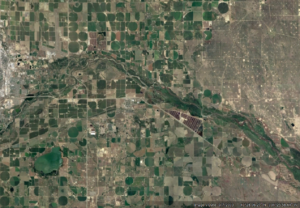
If we don’t want to change our lifestyle, then what other options are we left with to save our planet? That’s why we have engineering to make our lives easy, right? I too thought the same, and as a good engineer, I dived into studying how to build efficient low-flow water systems, make smart sensors and use technology to minimize water use. Sadly, the amount of freshwater in our planet is fixed, and technology can only do so much in conserving water. It is our hunger to procreate and to consume resources the actual elephant in the room to address. Also sadly, there is still no great technology to take out the harmful chemicals we put into our bodies and into our environment; therefore, you might want to reconsider taking that “morning-after” pill or that “feel-good” pill, if you genuinely want to safeguard our planet. At the end of the day, tragedy of the commons (or, doomsday, or judgement day, or whatever cult you follow calls it) is right by our doorstep. Unless we see this as a turning point to evolve to respect our planet, bridge indigenous knowledge with modern technology, make amends to our attitude and change our behavior as mindful consumers, then we must be more than prepared to face the consequences which mother Earth will unleash upon us. Well, Earth has already begun her work to clean up the mess that we have created. Will you be by her side to actively do the work needed to save us? Or, are you going say that everything is fine and continue living in an illusion of your actions?
The problems with sustainably using water resources go way beyond the scope of engineering. So far in my research, I have been using the framework of the “hydrological-cycle”, and I am seeing that it only creates a huge gap between water resources management and the wellbeing of humanity and our planet. In the summer of 2016, I had a chance to travel to Haiti to volunteer with a local reforestation project. Prejudiced and skeptical as I am, I was under the assumption that the people in Haiti need help from the rest of the world to save them. But like always, life has its way of slapping me on my face and humbling me to the fact that I know less than I thought. It is true that in Haiti the environment is degraded, the government is corrupt, and the people are not sophisticated. But, despite all the things we can say to discriminate Haiti, there is humaneness, love, hope, and SOLUTIONS for the rest of the world. Yes, they have solutions! I saw people conserving water using simple ideas: trickling-water hand wash stations, waterless compost toilets, wick irrigation, rainwater harvesting systems and water recycling/reuse practices. It then hit me hard; instead of sending Haitians shipments of useless aid, in the form of clothes and plastic tents, we need to send our men and women to learn about human resilience and innovation in the face of environmental disasters. This can save research sponsors and taxpayers a lot of money in building a sustainable world instead of dissecting and “advancing” science in the labs. But, before sending our men and women to Haiti, are we first ready to go beyond idea of “first world”, “second world” and “third world” mentality?
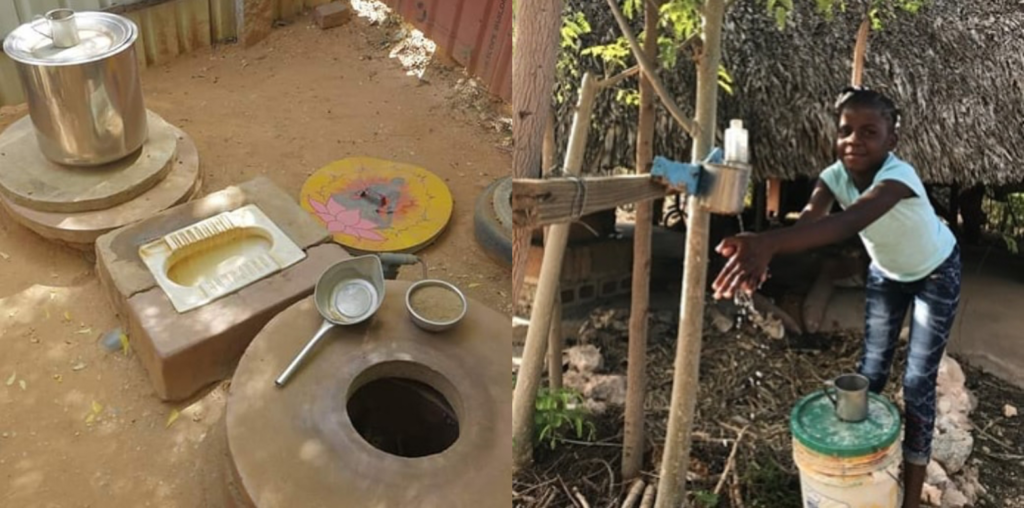
Early in 2019, I was fortunate to take a class on water resources management which used the lens of socio-political sciences and economics in studying water resources management – aptly called the “hydro-social cycle”. I am convinced that the solution to sustainably managing scarce resources lie in converging our perspectives in the fields of engineering, economics, political sciences, sociology, human psychology and arts into our research methods. As I write this blog, I keep reminding myself that stakeholder cooperation, and local community empowerment through outreach and involvement is the KEY to drive sustainable governance and policy making from the grass-root levels. This key is vital if we are to unlock our longevity on this planet. Hence, I strongly believe in the utopian idea of a world without borders (of the mind), because only when we transgress the limitations of our belief systems (religion, politics and science), we can see the truth of our actions in its entirety. There will be no second coming of Christ, Allah or Krishna if we are still depending on someone to save us from our own entanglements.
Before concluding, I implore you to look around you, travel the world and listen to different firsthand stories of people (not from facebook, instagram, newspapers, journals, or my blog). For, searching for answers in your own way is the only way that will help you make discernment between the right choice and the bad choice. We may look for water on Mars, in the moons of Jupiter, or elsewhere in our solar system and beyond, but if there is no global connectivity in the oneness of life on this planet, we will be taking the plague wherever we may roam among the stars.
To conclude, I will say that we have sucked on the teats of mother Earth for a long time now, and we have failed to realize that we are actually drinking blood instead of milk. My dear friend, what are you going to do about it?
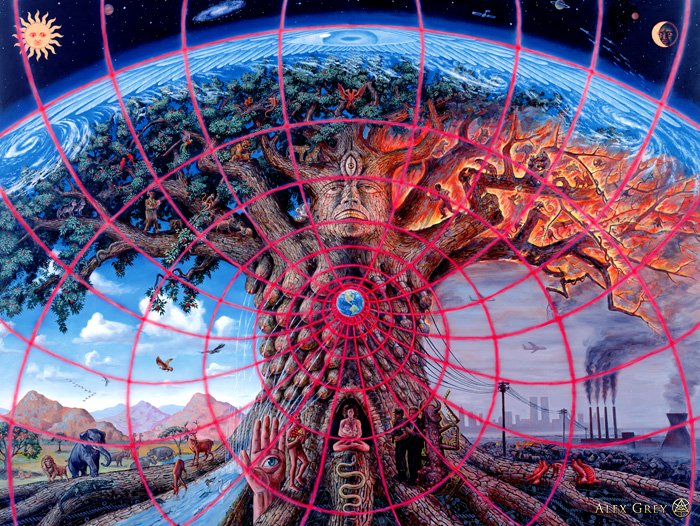
Disclaimer: All thoughts and ideas expressed here are solely based on the author’s troubled reality of our world, and it has no connection with Colorado State University or with the School of Global Environmental Sustainability. Please send your hate mail directly to the author at ccibiv@colostate.edu
